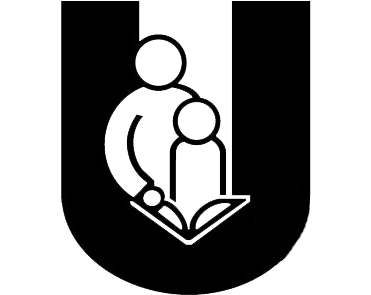CASE AUDIOLOGY SERVICES
Read below to view all services CASE AUDIOLOGY offers to families in Urbana.
Diagnostics: Complete audiological diagnostic services (e.g.., threshold testing, speech perception testing, tympanometry, otoacoustic emissions) are available as well as evaluations of hearing aids, FM systems or cochlear implants, and interpretation of testing done by outside evaluators. CASE audiologists also manage specialized amplification equipment for students with hearing impairment. Test results are shared with the parents, school and any medical provider or agency the parents would like to have notified.
Consultation: Consultation services are available to school staff and parents. Audiologists will provide information and referral for related services not provided by this office such as referral for the evaluation of hearing aids or a cochlear implant and resources for financial assistance for medical care related to hearing or the purchase of hearing aids or cochlear implants.
Inservices: Audiologists will provide services to parents, students, school personnel or community agencies concerning: hearing health care, testing procedures, amplification or other related topics. Inservices are often conducted in cooperation with local Teachers of the Deaf and Hard of Hearing or the CASE Vision and Hearing Coordinator.
Screening: Impedance screening or tympanometry is conducted in the early childhood (3-5 year olds) classrooms in the area. This test helps identify children who may have intermittent ear and hearing problems due to ear infection or middle ear fluid. It is not a direct test of hearing, but rather helps identify children who may need further audiological or medical evaluation. Mass hearing screenings are not provided by CASE, but rather by local school nurses or audiometric technicians (through the Illinois Department of Public Health). Children that fail the hearing screening provided in the school are eligible for complete diagnostic hearing testing at the CASE office.
Ear Team: The Educational & Audiological Review (EAR) Team is a joint project between itinerant Teachers of the Deaf and Hard of Hearing, audiologists and the Coordinator of Educational Services for Students who Deaf and Hard of Hearing. Members collaborate to share information and expertise to ensure quality programs for students with hearing impairment. A primary goal of the EAR Team is to help minimize the impact of hearing loss, thus facilitating learning in the general education classroom.
Referrals: CASE is committed to making diagnostic services available to children based on parent or teacher concerns about the child’s hearing, and maintains an open referral policy. Children being evaluated for the possibility of other disabilities (i.e., speech/language, learning disability, attention deficit) should have a hearing evaluation to rule out hearing loss. Please feel free to call the audiologists with questions if you are unsure about referring a specific child.
Referral forms are available HERE and from your Director of Special Education or may be requested from the CASE Audiology office. After a referral is received, the CASE office will contact the family to schedule a hearing test. If the family cannot be reached by phone, they will be contacted by mail. Please be aware that attempting to schedule via the mail often delays our efforts in obtaining a hearing test. Parents bring their children to the hearing evaluation so that they may participate in the evaluation and be informed about the results.
The Hearing Checklist: The following is a list of behavior patterns that are often characteristic of children with unidentified hearing loss. If three or more of the behaviors are identified, a hearing test is recommended.
- Appears not to be paying attention. May seem to daydream or be withdrawn.
- Hearing inconsistently. Appears to hear some days or in some settings and not hear at other times.
- Frequently requests repetition. Asks “what?” or “huh?”
- Does not put endings on words and/or has difficulty pronouncing sounds such as “s”, “sh”, “th” and “f”.
- Has allergies, frequent colds or ear infections. Has had PE tubes placed in ears.
- Seems to be very visual and/or concentrates on people’s faces when they talk.
- Does not follow oral directions.
- Sometimes gives answers unrelated to the question asked.
- Complaints of ear pain or tugs at ears. Complaints of noise or buzzing in ears.
- Has short attention span or is easily distracted.
If your child/student has never had a hearing test before or they’re apprehensive about what happens, here’s a nice photo journal with descriptions. Thanks and credits go to Alicia Trezise, Social Worker for the Urbana School District.
L-Letters: At the beginning of every year, we send out individualized letters to the schools about each student that we follow through EAR Team. In addition to these letters, each school will be visited by one of our Teachers for the Deaf/Hard of Hearing to discuss these points in more detail and to answer any questions.
- L5 – General Elementary
- L6 – General Secondary
- L7 – Middle Ear Hearing Loss
- L8L – Unilateral Hearing Loss Left
- L8L+ – Unilateral Hearing Loss Left+
- L8R – Unilateral Hearing Loss Right
- L8R+ – Unliateral Hearing Loss Right+
- L9 – Mild Hearing Loss
- L10 – Moderate Hearing Loss
- L11 – Severe-Profound Hearing Aid
- L12 – High Frequency Hearing Loss
- L13 – Hearing Aid User
- L14 – Low Frequency Hearing Loss
- L15 – Cookiebite Hearing Loss
- L16 – Unique
- L17 – Communication Tips
- L18 – FM System
- L19 – Cochlear Implant
- L20 – Birth to Three
- L22 – Sound Field System
- L23 – Bone-Anchored Hearing Aid User



